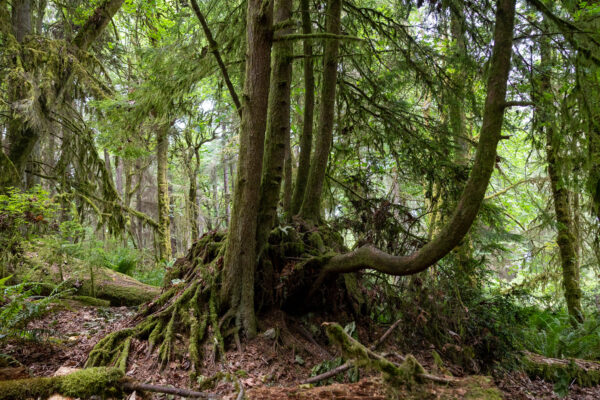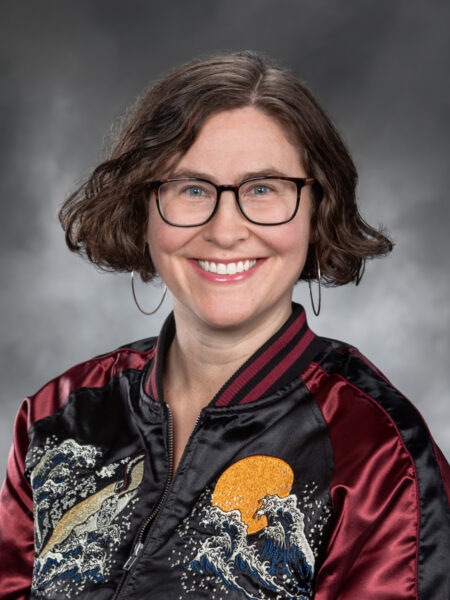*This is a feature from our 2024 Summer issue of Convene, our bi-annual magazine.
Washington’s Commissioner of Public Lands (CPL) is one of only six statewide natural resource positions in the country. The CPL, who runs the Department of Natural Resources (DNR) has a profound influence on how our state manages nearly 12 million acres of public and private lands in our state. We believe the next CPL has an incredible opportunity to innovate and to reimagine how to serve the public and how to manage forests and aquatic lands to benefit all the people of Washington.
In April, we endorsed King County Commissioner Dave Upthegrove for CPL. Upthegrove has decades of experience in natural resources and environmental policymaking. He has a demonstrated knowledge of the history and of the need for transformational change at DNR, prioritizing racial justice, environmental justice, and Tribal sovereignty. He is best positioned to win this important statewide position. In May, Upthegrove sat down to answer a few questions:
What’s your favorite way to get out in nature?
I spent my summers in high school and college teaching environmental science to young people on Hood Canal and leading week-long backpacking treks through the North Cascades. To this day, I love mountain hiking, especially longer backpacking treks. I rely on my friends to join me on day hikes or the rare backpacking trek.
Healthy forests provide many benefits like storing carbon, filtering or cooling water, and providing timber. How do you envision the Department of Natural Resources contributing to our state’s greenhouse gas emissions reduction goals and managing public state lands to benefit everyone in Washington?
We can end the destruction of our mature legacy forests while still supporting rural economies, creating jobs and funding public services. I know these kinds of big changes are possible because I have led similar changes in King County. For instance, I helped establish a forest carbon program as part of our King County Land Conservation Initiative and have led successful efforts to stop the destruction of carbon-dense mature legacy forest in King County, including the proposed Wishbone timber sale.
Mechanization, market forces and new corporate structures have changed forestry in ways that decrease jobs and create uncertainty for rural economies. How would you reconcile the different priorities of industry and communities?
Relying solely on simply cutting down more forests isn’t a long-term sustainable economic strategy for rural communities. I envision a strong healthy forest practices industry in this state for years to come, but also believe we can change how we harvest and where we harvest in order to better protect our clean air, clean water and habitat.
About 70% of our wood products come from private timberlands, which are not owned by the DNR. When those lands face a risk of conversion from forestry to other uses, I think the state can bring them into our trust holdings and keep them in forestry.
We also have opportunities for public investments, as well as private contracted work, on state forestlands that would create good jobs and economic activity in rural areas without the same degree of environmental impact. For example, we can, and should, be investing much more in forest health work such as targeted thinning that not only provides wildfire resilience but also improves the health of the forests.
People in Washington hold very different views about how we should use our forests, and how we should balance needs. How will you bring more community and Tribal voices into the center of the conversation while also engaging with the timber industry?
I think the key is robust communication and early consultation. We need to be engaging more in genuinely joint planning efforts. One early priority will be to work with Tribes on a long-term strategic plan for use of public lands for clean energy development. We shouldn’t be pitting clean energy against tribal sovereignty. We can do better. Finally, I will ask the Legislature to expand the Board of Natural Resources membership to add a community representative as well as Tribal representation.
Environmental damage and degradation disproportionally affect those least responsible for the problems: rural communities, Tribes, and communities of color. How will you lead DNR to create more equitable outcomes in areas such as wildfire, air quality, logging, urban forestry, and Treaty rights?
I came out of the closet the year I first ran for office. My mentor at the time said she loved me, but that I couldn’t run for office. This was more than 20 years ago, and the thought of a gay legislator deep in the working-class suburbs of South King County was unheard of at the time. But I ran and won and made history as the first out LGBT state legislator outside the City of Seattle in the history of our state. What drove me then still drives me today: a passion for justice. This means not just LGBT equality, but racial equality, gender equality, fighting for tribal treaty rights and labor rights. I’m the son of a father with disabilities and the brother of someone who has overcome addiction and criminal justice involvement. My commitment to justice is personal.
My mission will be to incorporate equity & social justice into all of our operations and programs. I’ll hire the most diverse staff in the history of the agency, lead the charge for structural changes at the Board of Natural Resources to make it more inclusive, and will honor tribal treaty rights and strengthen the co-management role of Tribes.
Most people are surprised to hear that DNR has an important role managing “aquatic lands,” navigable lakes, rivers, streams, and marine waters. DNR stewards more than 2.6 million acres of state-owned aquatic lands in Puget Sound alone. What opportunities do you see to strengthen protection and restoration of aquatic lands for future generations?
There is an aquatic lands restoration team within the Department of Natural Resources that does nothing but work on restoring aquatic lands—doing things like getting rid of nasty creosote pilings, doing eelgrass planting, and removing derelict fishing gear. I want to ask the Legislature to expand their work, with a focus on supporting forage fish populations.
If you were to write a note to future generations about your work on the environment, what would it say?
To the future generations, my true legacy lies in the promise I make to you: that I will never waver in my dedication to leaving behind a world that is cleaner, healthier, and more resilient than the one I inherited. We’ve built a future where the beauty of nature thrives, where every living being can flourish, and where our planet is cherished and protected for generations to come.
With hope and determination,
Dave
Vote by August 6, 2024 in the primary election for Dave Upthegrove for Commissioner of Public Lands. For a full list of WCA’s 2024 primary election endorsements, click here
Your donation ensures a sustainable future.


